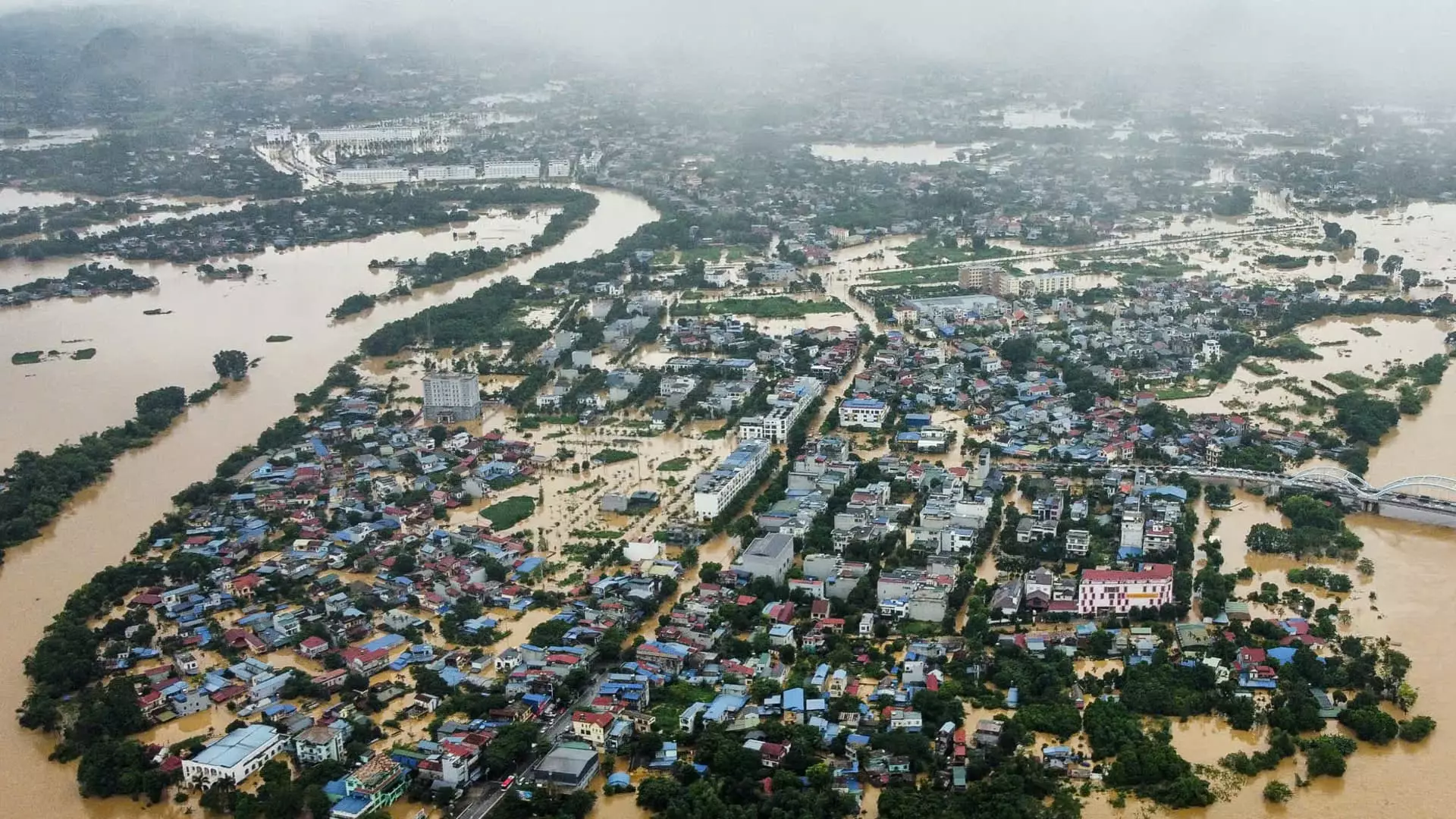As 2024 drew to a close, the Indo-Pacific region found itself grappling with a myriad of challenges that dominated headlines and shaped the lives of millions. The year unfolded against a backdrop of economic volatility and geopolitical tensions, leaving many wondering where the silver linings lay. Amid the uncertainty, however, glimmers of resilience and adaptability emerged, weaving a complex narrative of struggle and recovery.
In sharp contrast to the optimism that often accompanies a new year, 2024 revealed stark realities for the Indo-Pacific. Many nations faced dire consequences from climate change, revealing vulnerabilities that had been exacerbated over the years. From unprecedented heatwaves to devastating floods, the suffering felt by communities became all the more tangible in a region where environmental catastrophes have frequently led to loss of life and livelihood.
The renaming of “natural disasters” as “climate casualties” in discussions surrounding these tragedies signifies a crucial shift in perception. In 2024, the increasing frequency and intensity of weather events such as Super Typhoon Yagi, which tore through Southeast Asian countries, drew attention to the urgent need for global climate action. Typhoon Yagi left a devastating trail, claiming lives and displacing communities from the Philippines to southern China and Vietnam. Such disasters have built an insidious narrative, marking 2024 as one of the darkest years for climate-wrought devastation.
The monsoon rains, notoriously intense in countries like Bangladesh and India, further compounded these issues with flooding that displaced millions and claimed countless lives. There’s a growing sense that as weather patterns evolve, the affected populations are becoming tragically invisible, lost among staggering statistics and forgotten in the longer conversations about climate change.
East Asia’s demographic crisis continued to dominate discourse in 2024, with record-low fertility rates an alarming feature in the narrative. Major economies such as South Korea, China, and Japan grappled with the social and economic ramifications of declining birth rates while transitioning towards a “super-aged” society.
This “baby drought” reflects shifting sociocultural paradigms, where changing gender roles and the pressures of modern life take precedence over traditional family structures. The alarming trend—coupled with the realities of rising living costs—means that aspirations for parenthood have diminished drastically. Countries that once prided themselves on their burgeoning populations now face stark realities of labor shortages and economic stagnation due to rapidly aging populations.
As political landscapes across Asia shifted in 2024, the prospects of democracy provided an unpredictable and disparate picture. Elections throughout the region, marked by both triumphs and turmoil, highlighted the complexities facing leaders and citizens alike. The political upheaval in Bangladesh, for instance, further exposed the fragility of political stability, with Prime Minister Sheikh Hasina’s regime challenged by widespread protests and eventual flight from power.
Conversely, the electoral resilience seen in Taiwan showcased democracy at work, reaffirming the region’s commitment to participatory governance despite external pressures. In South Korea, deeply polarized sentiments culminated in the president’s martial law declaration, highlighting the thin line between control and the preservation of democratic freedoms.
Across the board, the experiences within democratic frameworks were layered, with some nations surging ahead while others struggled to emerge from political unrest. The shift to coalition governance in India and the peaceful transfer of power in Indonesia illustrated the vibrancy of democratic processes amid rising authoritarian sentiments.
In the midst of these challenges, one phenomenon stood out significantly: the global embrace of South Korean culture. “Hallyu,” or the Korean Wave, continued to captivate and export South Korean creativity across various platforms, from K-dramas on Netflix to international music charts dominated by K-pop royalty. In 2024, the cultural capital of South Korea burgeoned into tangible economic benefits, projected to surpass $198 billion in just a few years. This soft power strategy not only elevates South Korea on a global scale but also creates new opportunities within the region for cultural exchange, tourism, and cooperative ventures.
As part of this cultural fascination, unexpected stars emerged, like Moo Deng, the baby pygmy hippo whose viral fame captured hearts worldwide, exemplifying the unpredictable nature of modern media consumption and its influence on both local and global cultures.
While 2024 produced challenges that tested the resilience of the Indo-Pacific, it also illuminated pathways to renewal, challenging us to rethink notions of success and progress. As we brace ourselves for a potential Year of the Snake, reflective of the region’s historical complexity and depth, there lies an opportunity to transcend challenges and embrace innovation. With insights gained from the struggles of 2024, the future can forge a vision built on sustainability, cultural understanding, and collaborative governance—one that strengthens the fabric of the Indo-Pacific community.


Leave a Reply